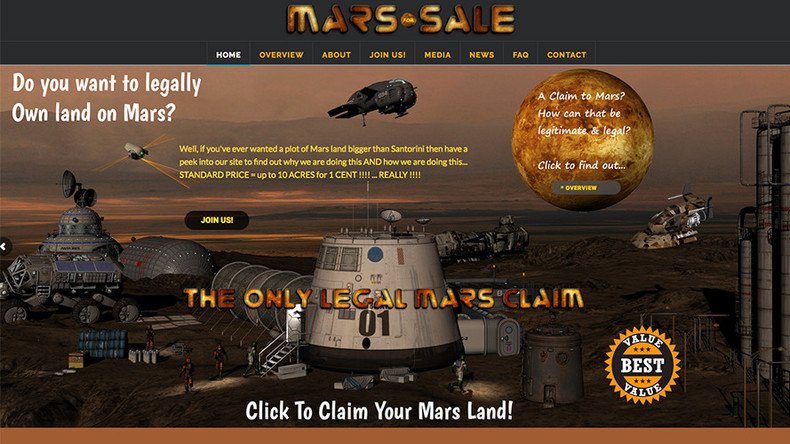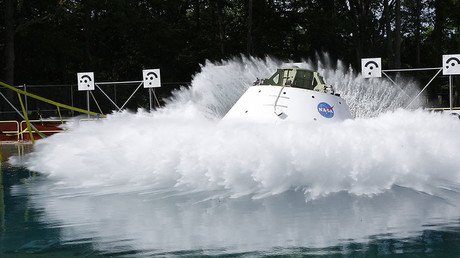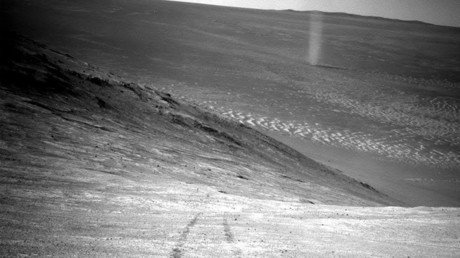Want to buy land on Mars? British doctor sells Red Planet one acre at a time

A British doctor is selling off blocks of land on Mars for a total of £27 million “to ensure celestial safety” – a move which he says could have United Nations backing by next year.
Dr Phil Davies, 49, from Hampshire, says he has a “legally well-constructed claim to land on planet Mars.” Through his website, mars.sale, he is offering people the chance to buy it off him for just one US cent for 10 acres.
So far, 1,100 people have made purchases, and 11,000 acres of Mars have been “sold.”
Davies says the action is not about the money, but safeguarding the future of space. Planets could soon be exploited by Earth countries competing to mine asteroids or those wanting to take nuclear weapons into the cosmos, he says.
Davies says the 49-year-old Outer Space Treaty (OST), the only current law governing activities in space, is outdated and unworkable.
He says the treaty needs to be tightened to ensure individuals cannot lay claim to individual bodies and prevent a cosmic “land grab and gold rush.”
“This is purely to tighten up the loose laws around ownership of land in space, because at the moment we are allowed to do that, and we should not have been able to do that,” Davies told the Express.
“Ultimately we will hand it over to the United Nations and that is our code of conduct.
“We have created the first legally difficult to challenge claim on land in space.”
In his legal claim to Mars, Davies is applying laws used for difficult to reach places on Earth, such as the North and South Poles, when the prospective owner has never been there.
“How can we possibly have a legally valid claim to land on Mars?
“Well, the answer involves cosmology, laser science, Morse code, public international law and space law.
“With a claim that is very consistent with the legal proof requirements for acquisition of difficult, distant or relatively barren terrain – on Earth … but applied also to Mars – and is not blocked by elements of the OST, we can justify an international legal right to due process.”
Davies says other organizations which have laid legal claim over celestial bodies are “shadow gimmicks with no associated importance,” and his claim is “a world first and will be huge in 2017.”
Davies says his project is close to winning the backing of the UN.
“After genuine high-level negotiation with UN officials we are now just awaiting the agreement of a COPUOS [Committee on the Peaceful Uses of Outer Space] member to propose to the committee that our claim be appraised for Right to Due Process.
“The Permanent Court of Arbitration at the Hague stand officially ready to arbitrate.
“The Deputy Secretary General of Permanent Court of Arbitration advises us that such a claim/dispute was foreseen by them, hence they have bespoke rules for arbitration on disputes concerning outer space activities.”
Meanwhile, Davies and his team have been firing high-powered lasers at Mars to give it “warmth and light” in the hope it will release carbon dioxide and begin terraforming, which will mean people can move to the planet sooner.














